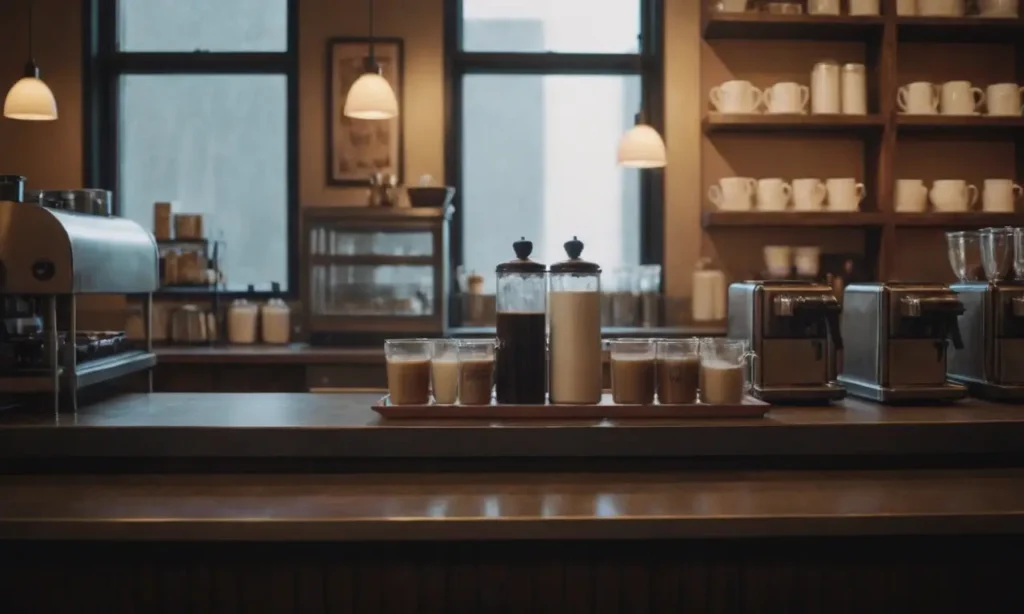If you’re a coffee lover—and let’s be honest, who isn’t?—you might have heard about “tannins” popping up in discussions about your favorite brew. So, does coffee have tannins?
Spoiler alert: Yes, but there’s more to it than a simple yes or no.

Tannins
First things first, what are tannins?
Tannins are naturally occurring compounds found in plants. They belong to a class of polyphenols, which are known for their antioxidant properties. Tannins are astringent, meaning they can make your mouth feel dry and puckered—think about the sharp sensation you get from a sip of over-brewed tea or red wine.
The word “tannin” comes from the ancient practice of using these compounds to tan animal hides. Who knew your coffee had historical ties to leather?
Does Coffee Contain Tannins?
Yes, coffee does contain tannins, but not in the way most people think. The tannins in coffee are different from those in tea or wine. Here’s how:
| Compound Type | Coffee | Tea | Wine |
|---|---|---|---|
| Tannins | Yes | Yes | Yes |
| Type of Tannins | Hydrolysable Tannins | Condensed Tannins | Condensed Tannins |
Coffee contains a subset of tannins known as “hydrolysable tannins.” These compounds contribute to the overall mouthfeel and some of the bitterness in your cup of joe. However, they’re not as dominant in coffee as in tea or wine.
How Do Tannins Affect Coffee?
Tannins play a subtle but crucial role in shaping coffee’s flavor profile. Here’s how they make themselves known:
1. Astringency
That slight puckering sensation you sometimes get from a strong brew? Blame (or thank) the tannins. This is especially noticeable in dark roasts or over-extracted coffee.
2. Bitterness
Tannins are not the primary contributors to coffee’s bitterness (that’s caffeine’s job), but they do enhance it. It’s like adding a backup singer to a solo act.
3. Antioxidant Power
While tannins are often cast as the villains of bitterness, they’re also part of coffee’s health-boosting polyphenol team. These antioxidants help combat free radicals in the body, which is a fancy way of saying they’re good for you.
Do Tannins Make Coffee Bad for You?
Let’s bust some myths:
- Staining Your Teeth: Yes, tannins can contribute to those pesky coffee stains on your pearly whites. But hey, nothing a good whitening toothpaste can’t fix.
- Digestive Issues: If you’re prone to acid reflux or a sensitive stomach, tannins might be a contributing factor. Opting for a low-acidity coffee or adding milk can help.
- Health Benefits: The antioxidants in tannins may lower inflammation and promote heart health. So, sip away (in moderation) with a guilt-free conscience.
How to Manage Tannins in Your Coffee
Not a fan of the bitter or astringent taste? Here’s how you can dial it down:
- Choose Your Roast: Lighter roasts have fewer tannins compared to darker ones. Go light for a smoother sip.
- Mind Your Brew Time: Over-extraction amplifies tannins. Aim for a brewing sweet spot (e.g., 4 minutes for a French press).
- Add Milk or Cream: Dairy proteins bind to tannins, reducing their astringency. Plus, who doesn’t love a creamy latte?
- Cold Brew It: Cold brewing extracts fewer tannins, giving you a sweeter, smoother coffee.
FAQs About Coffee and Tannins
1. Is coffee more astringent than tea?
Nope. Tea generally has a higher tannin content than coffee, which is why it’s more likely to leave your mouth feeling like the Sahara Desert.
2. Do tannins make coffee taste bad?
Not necessarily. While they add astringency, tannins also contribute to the complexity of coffee’s flavor. It’s all about balance.
3. Can I be allergic to tannins in coffee?
It’s rare, but some people have sensitivities to tannins. Symptoms might include headaches or upset stomachs. If this sounds like you, consult your doctor (and maybe switch to decaf).
The Takeaway
So, does coffee have tannins? Yes, but they’re just one small part of coffee’s complex flavor profile. Tannins add depth, texture, and a touch of astringency to your brew. They’re also part of the reason coffee is packed with antioxidants.
If tannins aren’t your cup of… coffee, there are plenty of ways to minimize their impact while still enjoying your morning ritual. After all, life’s too short for bad coffee—and for worrying too much about tannins.
Now, go grab a mug, and remember: Tannins or not, coffee is here to make your day better, one sip at a time.



